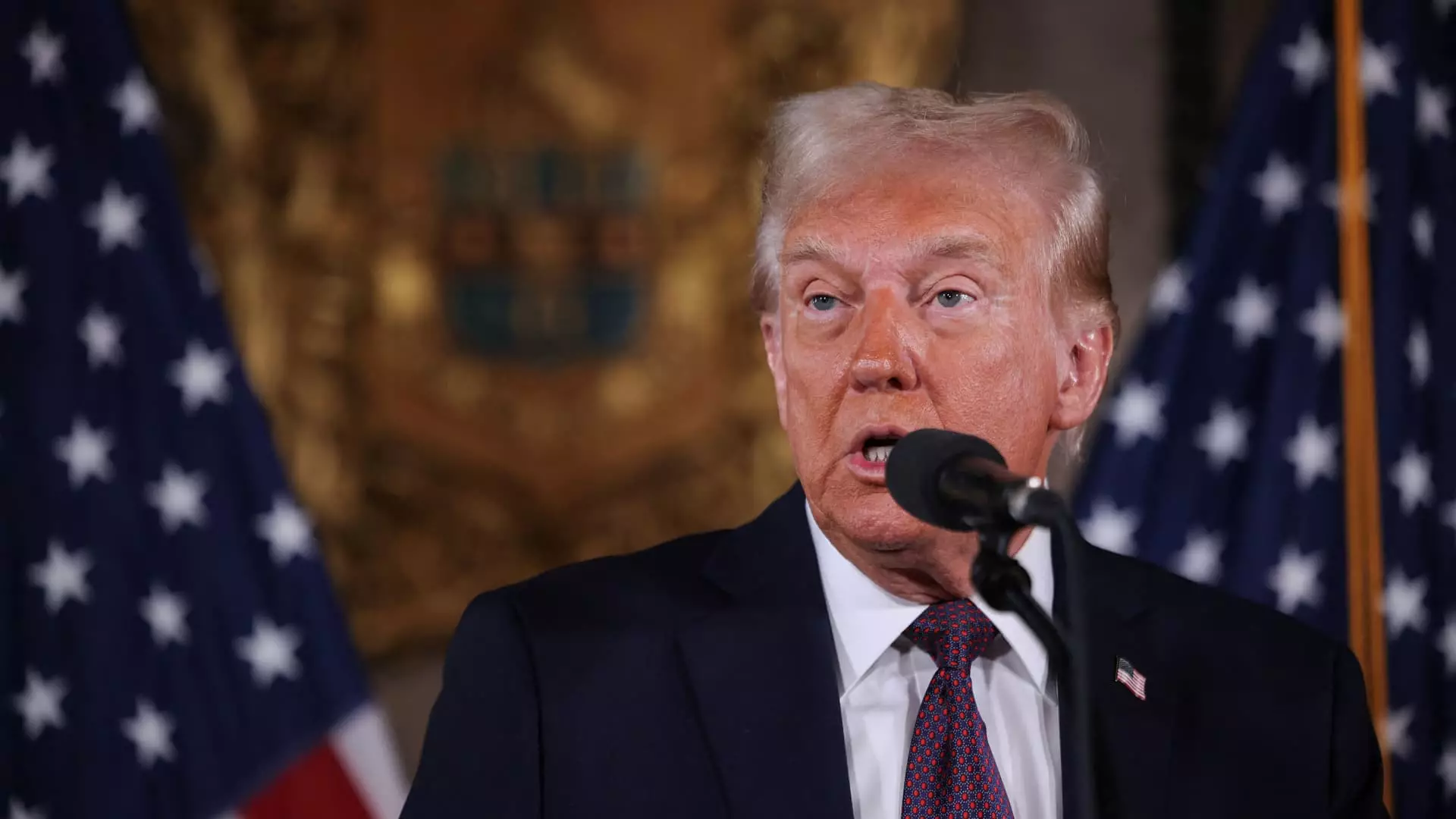In a significant move announced recently, President-elect Donald Trump revealed plans for a robust $20 billion foreign investment aimed at establishing new data centers throughout the United States. This commitment comes from Hussain Sajwani, an influential Emirati billionaire and head of DAMAC Properties, known for his real estate ventures. During a gathering at Trump’s Mar-a-Lago estate in Florida, the president-elect hinted that Sajwani’s investment could even exceed the initial figure, potentially doubling in amount. This ambitious initiative underscores a promising shift in foreign investment trends in the U.S. landscape.
Trump outlined the “first phase” of the data center project, which will kick off in several states, including Texas, Arizona, Oklahoma, Louisiana, Ohio, Illinois, Michigan, and Indiana. Each of these states is poised to benefit from job creation, technological advancement, and a general uplift in their local economies. Investors view these ventures as a way to capitalize on the growing demand for data storage and processing capabilities, particularly as businesses and consumers become increasingly reliant on digital technology. By modernizing the data infrastructure, the investment could foster innovation and improve service delivery in various sectors.
Sajwani’s investment appears to be significantly influenced by the political climate following Trump’s election victory—a sentiment echoed by many global business leaders looking to the U.S. for new opportunities. The developer articulated his excitement about Trump’s administration during the announcement, indicating that the election’s outcome served as a catalyst for substantial investment in the U.S. market. This trend reflects a broader confidence among international investors in the potential for economic growth under the new regime.
This announcement is not an isolated instance; it follows a wave of multinational corporations expressing interest in U.S. investments. For example, Softbank’s CEO Masayoshi Son recently declared intentions to invest $100 billion into the U.S. economy, with projections of creating 100,000 new jobs over the upcoming years. This ongoing influx of capital highlights a burgeoning trend where international firms are actively seeking to establish a strong presence in the U.S. marketplace. Such commitments could result in a significant economic boost during Trump’s administration, particularly if the government continues to create an enticing environment for foreign businesses.
In an effort to sustain and accelerate this momentum, the incoming administration has proposed various incentives, including expedited permits for foreign investments exceeding $1 billion. These perks are designed to attract substantial foreign capital, potentially reshaping the domestic economic landscape. By easing bureaucratic burdens, the administration is positioning the U.S. as a favorable destination for investment—an essential strategy to drive economic revival in an increasingly competitive global market.
The announcement of Sajwani’s $20 billion investment, coupled with other notable commitments from foreign business leaders, signals a potential new chapter in the U.S. economic narrative under Trump’s leadership. As these initiatives materialize, they will be critical to watch, as the transformation of U.S. infrastructure and job creation lies within the balance of these foreign investments. Whether this will lead to sustainable growth remains to be seen, but the initial signs point toward a period of significant opportunity in the American economic landscape.


Leave a Reply